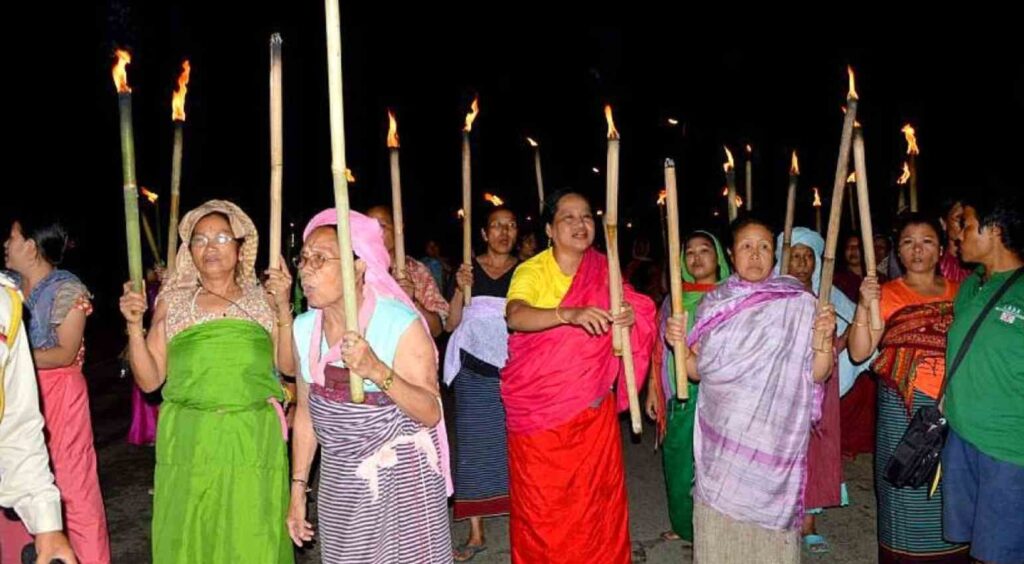
The Meira Paibis in Manipur has faced several challenges and obstacles in their pursuit of justice and equality. These challenges stem from the complex socio-political context of Manipur and the resistance they encounter from various actors:
- State Repression: The Meira Paibis have been met with repression from state authorities. The implementation of the Armed Forces (Special Powers) Act (AFSPA) granted security forces broad powers and immunity, leading to cases of violence, extrajudicial killings, and human rights violations. The Meira Paibis’ activism against such abuses has often been met with resistance, intimidation, and harassment by state forces.
- Patriarchal Norms: Manipur, like many other societies, has deeply entrenched patriarchal norms. Challenging these norms and advocating for gender equality can be met with resistance and backlash from conservative elements within society. The Meira Paibis, as women activists, have had to confront gender biases and societal expectations that undermine their authority and legitimacy.
- Lack of Resources: Grassroots movements often face resource constraints, and the Meira Paibis are no exception. Limited access to funding, infrastructure, and organizational support can hinder their efforts to mobilize communities, sustain their activism, and effectively address the issues they are advocating for.
- Security Risks: The Meira Paibis face security risks due to their activism. Their work often involves challenging powerful actors, including security forces and armed groups, which can put them at risk of physical violence, intimidation, and reprisals. This creates a climate of fear and poses challenges to their personal safety and the sustainability of their activism.
- Divisions and Fragmentation: While the Meira Paibi movement is united in its overarching goals, internal divisions and fragmentation can pose challenges. Diverse perspectives, competing priorities, and disagreements on strategies can lead to divisions within the movement, making it difficult to maintain cohesion and collective action.
- Limited Political Influence: Despite their efforts, the Meira Paibis face challenges in gaining significant political influence and affecting systemic change. Political structures and power dynamics often marginalize grassroots movements, making it difficult for them to secure meaningful policy changes or have their voices heard at higher levels of governance.
- Media Attention and Narratives: Gaining visibility and shaping public narratives can be challenging for grassroots movements. The Meira Paibis have struggled to capture sustained media attention and shape public discourse on the issues they are fighting for. This limits their ability to reach a wider audience and garner support for their cause.
Despite these challenges, the Meira Paibis have demonstrated resilience and determination in their pursuit of justice and equality. They have relied on grassroots organizing, community support, and creative strategies to overcome obstacles and continue their activism. Their perseverance serves as an inspiration and highlights the need for ongoing support and solidarity to address the challenges they face.
What Lessons Can Be Learned From The Meira Paibi Movement In Terms Of Grassroots Organizing, Community Mobilization, And Sustained Activism?
To What Extent Has The Meira Paibi Movement Been Successful In Bringing About Tangible Changes And Improvements In The Lives Of Marginalized Communities In Manipur?
How Has The Meira Paibi Movement Challenged Traditional Gender Roles And Empower Women In Manipur?






